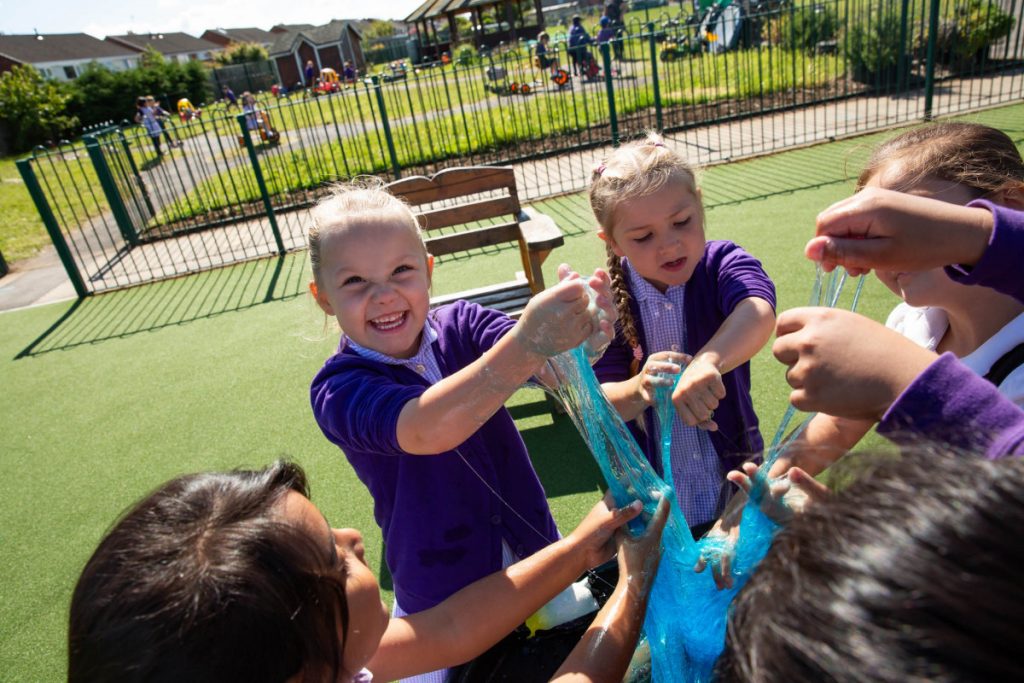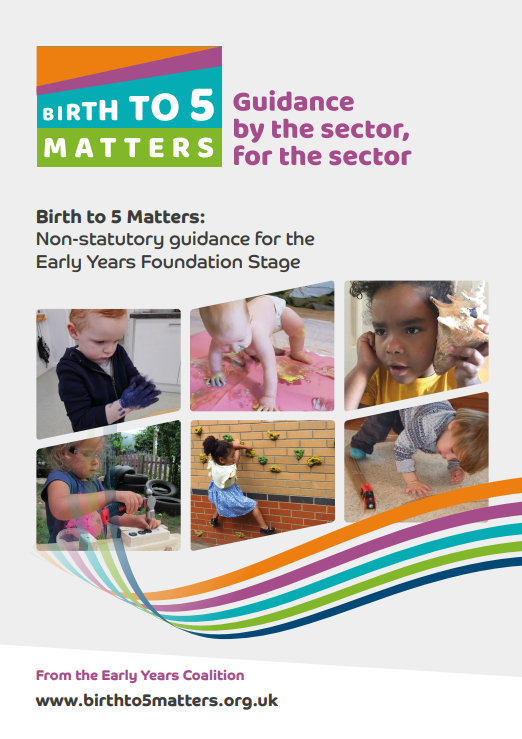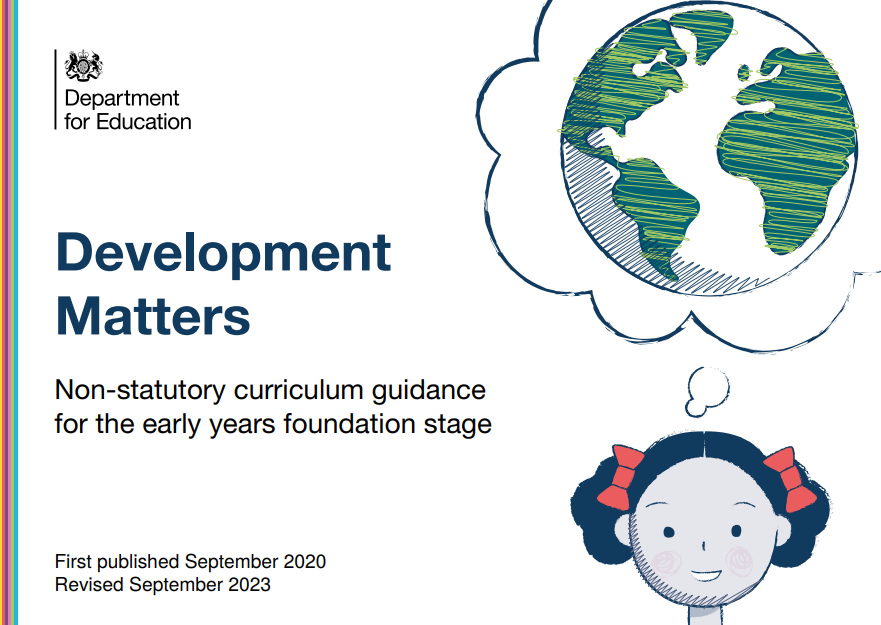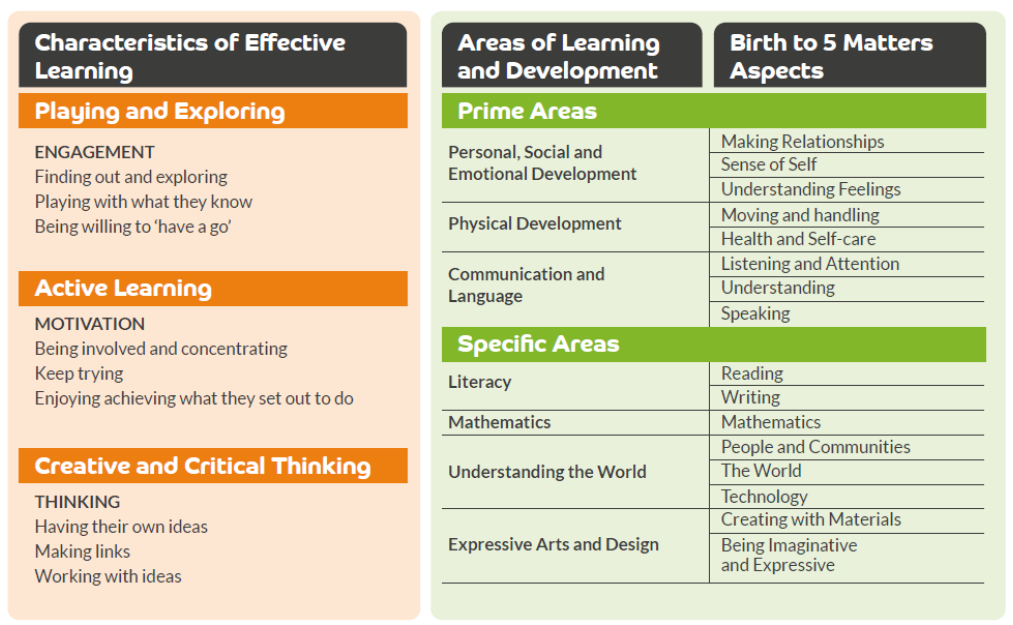Curriculum Lead : Mrs L. Yendall
“If you want a child’s mind to grow, you must first plant the seed. This ethos runs through everything we do in EYFS. We cultivate a love of learning through play, imagination and positive interactions- ensuring children develop the skills, confidence and resilience needed for a lifetime of success.” (L.Yendall, 2025)

Aims
At Kader Academy our aim is to ignite a lifelong love of reading. Reading for pleasure is a key feature of our Early Years practice, as it is within our whole school, with staff regularly sharing their love of books and stories, bringing them to life and inspiring imagination.
At Kader Academy, we believe that EYFS is the start of a magical personal and academic journey. It is here children enter a world of curiosity, discovery and boundless possibilities. We know that the foundations laid in these early years shape a child’s future and we are committed to providing a nurturing, engaging and inspiring environment where every child thrives. By recognising and valuing each child’s unique strengths and talents, our aim is to help them grow into confident, independent learners who believe in themselves and their abilities.
Approach
At the heart of our EYFS offer is a passion for developing oracy skills. A child’s voice is their most powerful tool and we are committed to nurturing confident communicators. Through rich discussions, storytelling, role-play and meaningful interactions, we help children develop their vocabulary, articulate their thoughts and express themselves. At Kader, we embraces all children as individuals: fostering a strong sense of belonging within our diverse school family. We are more than just a place of learning—we are a community where children feel safe, loved and inspired. Our staff work collaboratively towards a shared vision, ensuring that every child, regardless of their starting points, makes progress and reaches their full potential. Our approach is that together, we grow, learn and embark on an extraordinary journey, one where every child has the opportunity to flourish.
Outcomes
In EYFS at Kader Academy, we are committed to ensuring all children are:
🌟 Happy, secure, and safe – thriving in an environment where well-being comes first.
🌟 Independent, self-assured risk-takers -developing confidence to explore and embrace new challenges.
🌟 Confident and resilient– overcoming obstacles with perseverance and determination.
🌟 Excited and motivated to learn– engaging in hands-on, meaningful experiences.
🌟 Imaginative and kind– using creativity to express themselves whilst showing empathy towards others.
🌟 Socially strong and able to form positive relationships– developing friendships, teamwork, and respect.
🌟 Effective communicators—developing strong oracy skills to express themselves and shine.
Early Reading
Within each Literacy lesson we use books as hooks into learning. These books are carefully selected to develop vocabulary and comprehension skills and are embedded in our provision through a range of supplementing, engaging activities. Through these activities, children begin to internalise new vocabulary, language patterns and begin to retell stories. We believe imagination begins in stories and it is our role to ignite this imagination in play.
In addition to this the following reading sessions are planned regularly throughout the week:
- Shared Reading
- Let’s share a book
- Phonics
- Story Time
These are reflected upon during our team chat sessions and changes are made to suit the needs of the children.
Phonics
We follow the Read, Write, Inc Phonics programme to ensure consistency in the teaching of phonics across the school. Supplementary reading books and resources are also used by EYFS and KS1 staff to ensure the approach to teaching Phonics is both consistent and multisensory, as well as regular monitoring of the teaching of phonics and reading. Early reading activities are fundamental for children’s speaking and listening skills and lay the foundations for the phonics work which will follow. Carefully planned activities and strategies are interwoven seamlessly within our practise to ensure children’s listening skills are developed from the very start. Interventions are implemented when needs arise.
Staff are aware that each child may vary in the rates and ways they progress in Phonics. The reading leader who is an integral part of our senior leadership team, works alongside the Early Years senior leader and the deputy head to regularly assess the children and create homogeneous groups to ensure pertinent teaching and maximise potential.
Children are encouraged to read at home regularly and parents are encouraged to record this in their child’s reading diary. They are given books that match their phonic knowledge in order for them to apply their learning with the aim of becoming successful, confident and fluent readers. New and exciting activities are created to continually promote a love of reading in the home setting.
Early Writing
As a school we have a careful progressive English curriculum that creates confident and motivated, purposeful writers. In EYFS we embody the whole school writing vision and aim to begin the journey of writing. We use many strategies including- Talk for write, drama and Shakespeare. We also recognise the huge importance of the prime areas to underpin the skills needed to write. Fine and Gross motor development are also planned for carefully and our environment is a treasure trove for children to make progress in these areas. Our books as hooks approach helps children to explore text and examine meaningful opportunities for writing. For example, after reading ‘The Little Red Hen’, it becomes obvious how important team work is. Adults then carefully scaffold children’s learning to create role play team building activities and modelling writing shopping lists of the ingredients Little Hen needs to make the bread, such inspiring independent writing for themselves. Additionally adult directed activities in Literacy are provided to help children focus on all other important aspects of writing such as fine motor activities, speaking and listening, role play, mark making as well as deeply exploring vocabulary.
Early Maths
Children develop a love of maths through games, songs, rhymes, and play using concrete manipulatives and pictorial structures and representations which are then rehearsed applied and recorded within their own child-led exploration. In addition to these opportunities adult led time is given to the teaching of a wide range of maths skills using White Rose Maths and NCETM maths mastery programme. High quality learning environments and meaningful interactions with adults help develop mathematical thinking. Children develop fluency, revisit key concepts and address misconceptions in meaningful ways. For example, checking we have the correct amount of chairs for each child to sit at, or investigating whether tangerines all have the same amount of pieces. Maths learning is an integral part of our natural daily discussions and practise.
In the moment planning is at the heart of our EYFS setting and this paves the way for deep learning across the wider curriculum. Exciting, purposeful and contextual activities are planned in the moment to build on children’s natural curiosity. For example, building a ship for their favourite toy enables them to think like a ‘Scientist’ and an ‘Engineer’ as they explore a range of materials and test out their own ideas. Building further on our vocabulary and communication focus, children will be encouraged to employ subject specific language and terminology in foundation subjects, and such vocabulary will be modelled by supportive practitioners through inputs and during play. Our inclusive approach means that all children learn together, with further support and challenge for some children through a range of additional interventions groups. This includes, for example, sessions for developing speech and language, ‘BLAST’, social skills, nurture, fine motor skills, phonics, and mathematics.
Assessment
Throughout the year a range of assessments are carried out to record progress in children’s learning. At Kader Academy we use the whole school assessment system ‘Sonar’ which allows teachers to use their professional judgement to quickly identify pupils that are not making expected progress. Assessments are completed three times per year whereby the Class Teacher updates the attainment and progress children have made. In Summer Term 2 in Reception, the EYFSP is completed, where teachers judge whether the child has met each of the 17 ELG’s. They will be assessed as either ‘emerging’ or ‘expected.’ Whilst there is no judgement to state if a child is exceeding beyond an ELG, teachers, have a duty to provide a narrative for both parents and the Year 1 teacher. Impact is also evident through our successful transitions into Year 1. EYFS staff have a good understanding of how ELG’s link to the National Curriculum, and through our robust planning and delivery across the spectrum of subjects – both core and foundation – children leave the EYFS stage with the skills, knowledge and confidence to continue their journey as scientists, historians, artists and geographers.



